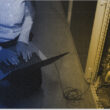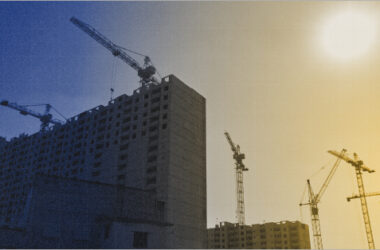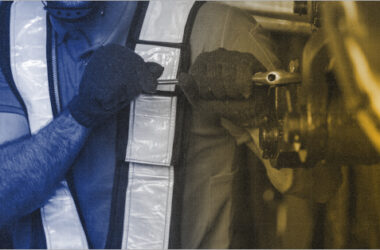Every construction site hums with the rhythm of bulldozers, cranes, and excavators, each playing a pivotal role in the choreography of progress. Yet, amid this dynamic world of construction, unforeseen disruptions can threaten to cast a shadow over even the most meticulously planned projects.
Contractors Plant and Machinery (CPM) Insurance works as a guardian angel for construction endeavors that promises to safeguard the heartbeats of progress. This comprehensive coverage steps onto the stage with a mission: to protect the invaluable machinery and equipment that serve as the backbone of construction sites. But what exactly does Contractors Plant and Machinery Insurance entail, and where do its boundaries of protection lie?
In this article, we intend to dissect the components that makeup CPM insurance coverage. In the process, we will uncover the canvas of protection it unfurls, as well as the nuances that may fall outside its purview. Whether you are a seasoned contractor, an equipment supplier, or an aspiring builder, this article promises to equip you with insights that enable you to navigate the challenges of construction with confidence. Let’s dive deep into the intricacies, understand the inclusions, and grasp the exclusions, all in pursuit of empowering construction excellence that stands unshaken in the face of uncertainty.
We start with the basics here…
What is Contractors Plant and Machinery?
Contractor’s Plant and Machinery Insurance is a tailored insurance solution for contractors and construction firms. This commercial product offers protection against any potential loss or damage to the machinery and equipment utilized in construction sites, factories, etc.
It encompasses a vast array of owned or rented equipment including bulldozers, loaders, cranes, compressors, generators, and excavators. Additionally, it provides coverage for third-party claims related to property damage or bodily injury that may occur during the policy period at the insured construction site.
Salient Features of Contractor Plant & Machinery Insurance
- On construction sites, it covers damage and loss to various machines and plants.
- It is usually possible to select only selected machinery to be covered under most policies.
- A person’s insurance premium is determined by the type of equipment, its use, its location, and the risks it involves.
Construction Plant & Machinery Insurance: Who Needs It?
The following parties are eligible for CPM insurance, either individually or jointly
- Construction firms and contractors
- Companies that rent equipment
- Owners of individual pieces of equipment
- A bank or financial institution investing in the project.
What is the process for making a claim for Contractor Plant and Machinery Insurance (CPM Insurance)?
The following steps should be followed in case of damage or loss to construction machinery.
- Immediately notify your insurance company and consultant.
- Assist the company’s surveyor fully.
- Fill out the claim form and submit it with the necessary documentation to prove your financial loss.
What Are the Benefits of Contractor Plant & Machinery Insurance?
A civil or building contractor is heavily dependent upon machinery or plant for their work. Some contractors have their own machinery or plants, while others hire these machinery or plants. Construction machinery represents an enormous investment, so any damage or loss to it can result in a heavy loss.
A CPM policy covers damage or loss incurred to construction equipment such as compressors, cranes, bulldozers, excavators, etc. Because of accidents caused by external perils such as fire, riots, strikes, malicious damage, storm, flood, earthquake, etc., damage can occur while the equipment is being in use, dismantled for overhaul, or resting.
What is Included in Contractor Plant & Machinery Insurance (CPM Insurance)?
Typically, CPM Insurance covers the risks associated with the machinery and equipment they use in construction projects. Here are some typically included coverages:
- Plant and machinery cover for physical damage – It protects the insured contractor against the loss or damage of insured machinery or equipment by accident. The policy covers fire, theft, floods, vandalism, accidental damage, and many other perils. When items are in use or at rest, when they are dismantled, cleaned, or reinstalled, this policy applies.
- Transit Coverage – Transport, including loading and unloading, between different project sites or locations is covered by this coverage.
- Liability for Third Party – The coverage includes legal defense costs and settlement amounts, as well as liability insurance coverage for bodily injury and property damage caused by the insured equipment or machinery.
- Express Freight cover – In the event of a covered loss, this add-on coverage covers the additional costs associated with replacing or repairing insured machinery and equipment through express freight charges. Providing this coverage ensures that contractors can resume work quickly and minimize disruptions to their projects.
- Clearance and Removal of Debris – A covered loss will be covered by this add-on coverage, which reimburses the costs incurred in removing debris resulting from the damage.
- Cost Escalation – If a covered loss occurs, the insured contractor will receive reimbursement for the increased costs of repairing or replacing the damaged machinery or equipment. Inflation or price changes in the market may drive up project costs.
- Air Freight – In the event of a covered loss, this add-on coverage pays for the cost of air transportation of insured machinery and equipment. The best time to utilize this coverage is when time is of the utmost importance and air transport is the quickest way to minimize delays.
By paying an extra premium, you have the option to include the following add-ons for your contractor plant and machinery insurance:
- Express Freight
- Terrorism Coverage
- Earthquake Protection
- Additional Customs Duty
- Escalation of Cost
- Dismantling and Shifting to a New Location
- Owners Surrounding Policy
- Clearance and Removal of Debris
- Third-Party Liability Insurance
- Air Freight Coverage
What is Excluded from Contractor Plant & Machinery Insurance?
There are some common exclusions found in Indian Contractors Plant and Machinery (CPM) insurance policies.
- Failures or breakdowns of mechanical or electrical equipment
- Pre-existing flaws and damages
- The loss resulting from an explosion of a pressure container or boiler.
- On-road vehicles developed and licensed for regular use
- A factory or machine is located near a public highway.
- Machines degrade due to inactivity.
- Knives, bits, drills, saws, cutting-edge parts, Molds, and so on, wear or depreciate more rapidly by default.
- Vessels or crafts used on the water.
- Tidal surges can cause partial or total damage or loss.
- A nuclear threat, war, or an activity that appears to be warlike.
- During the testing of the machine.
- Equipment other than tunnel boring machines used underground
- Terrorism-associated damage.
- A deliberate or negligent act by the insured or his representative
- Suppliers or manufacturers are liable for any damages.
Contractor Plant and Machinery Insurance Policy can be purchased by any of the following parties, either individually or jointly:
- Owner of the plant and machinery.
- Banks and financial institutions investing in the project.
- The contractor or user of the construction machinery.
The sum insured for the policy is determined by the cost of replacing each item with a new one of the same kind and capacity. This includes the current new replacement cost, along with ordinary freight, customs duty, additional charges, if any, and the cost of erection.
The premium for the policy is influenced by factors such as the type of equipment, its usage, location, and the level of risk involved.
Example 1:
Last year, nine tunneling machines (TBM) were deployed by Bangalore Metro Rail Corporation Limited (BMRCL) to dig tunnels between Dairy Circle and Nagawara. Rudra, a Tunnel Boring Machine (TBM), encountered unusual circumstances. An enormous pile of garbage caught the machine’s cutter head, preventing it from moving. It was later discovered that the area where the machine was stuck had been quarry land before it was turned into a landfill.
Officials later found out that the location where the machine got stuck was previously a quarry site, which had been converted into a landfill during the 1980s. Fortunately, after six months, the machine-made progress and started tunneling toward Langford Metro Station. Nonetheless, in such situations, there is a considerable likelihood of severe damage to the machine. Moreover, various occurrences like landslides, earthquakes, and fires can also pose risks to heavy construction machinery.
The Contractor’s Plant and Machinery Insurance Policy (CPM) helps the contractor by covering the cost of repairing or replacing the damaged machinery.
Example 2:
Assume a crane accidentally drops a stone at a construction site and damages a car of a third party. To protect the contractor’s project against various risks, including third-party liability, a CPM insurance policy would cover the contractor’s liability for any damage the crane causes to the third party’s car. The cost of repairs, replacement parts, or, in severe cases, the loss of the vehicle could be included in this cost.
The footnote:
In the world of construction, where progress hinges on the precision and power of specialized tools, the need for a protective shield is undeniable. From the discussion above, we have seen that Contractors Plant and Machinery Insurance steps forward as a steadfast guardian of construction endeavors.
It is not merely a policy; it’s a commitment to resilience, a pact that acknowledges the dynamic nature of construction and stands as a bulwark against the unexpected. As we conclude this journey, let us carry forward the knowledge acquired. Equipped with insights into the inclusions and exclusions of Contractors Plant and Machinery Insurance, we hope, construction professionals and stakeholders can navigate the challenges of their craft with heightened confidence.
Frequently Asked Questions
- In Contractor Plant & Machinery Policy, what is covered by floater?
As the name suggests, a floater cover protects a contractor’s movable equipment and machinery located at various locations against all types of risks and perils.
2. What are the differences between peril and coverage?
In insurance, a peril refers to a specific event that could damage, destroy, or harm an insured property or individual. It can be a natural disaster like a fire, flood, or earthquake, or a human event like theft, vandalism, or an accident.
Insurance coverage, however, refers to the protection provided by a policy against specific perils. It describes the scope and extent of financial reimbursement or assistance an insurance company will provide for a covered loss.
3. In the event of plant and machinery damage, what are the perils that are covered?
Under CPM insurance, the following perils are covered.
- Accidental damage
- Earthquake
- Fire & Lightning
- Theft & Burglary
- Flood and Inundation
- Storms, Tempests, and Cyclones
- Vandalism, sabotage, or malicious acts by others can cause damage.
4. What is the usual duration for the CPM Policy?
Generally, CPM insurance policies are issued for 1 year. And the same needs to be renewed on an annual basis.
5. Do plant and machinery represent a liability or an asset?
The term tangible asset refers to assets that have substance, such as inventory, a building, rolling stock, manufacturing equipment, and office furniture. Plant and machinery are grouped into the category of assets.
6. Who needs the contractor’s plant and machinery insurance policy mainly?
Owners, lessees, and hirers (either legally or through a leasing agreement) of machinery and equipment can take this policy, as can banks and institutions investing in construction projects.
7. Are there any additional add-ons that can be purchased with this policy?
- Commercial General Liability coverage for the third party
- Additional Customs duty coverage
- Debris removal charges
- Inclusion of express freight, overhead charges, air freight charges, and overtime wages
8. Do I need to update my contact information with my insurance provider every time it changes?
It is always important to inform your insurer if your contact information changes. This helps ensure that you receive all correspondence in a timely manner.
9. If a new machine/equipment of the same type replaces my old one, should I inform the company?
CPM Insurance requires the insured to provide the serial numbers of the machines at his disposal. The insurer must be informed immediately if the machines are replaced.








